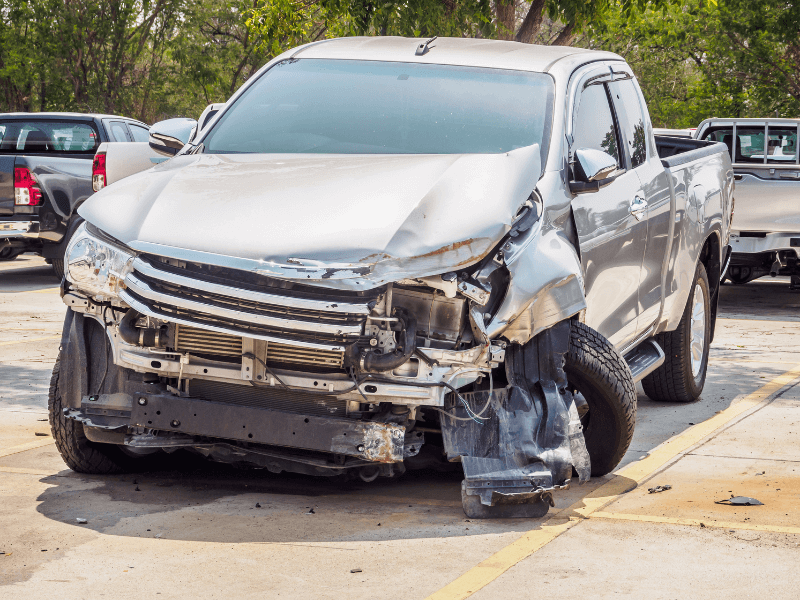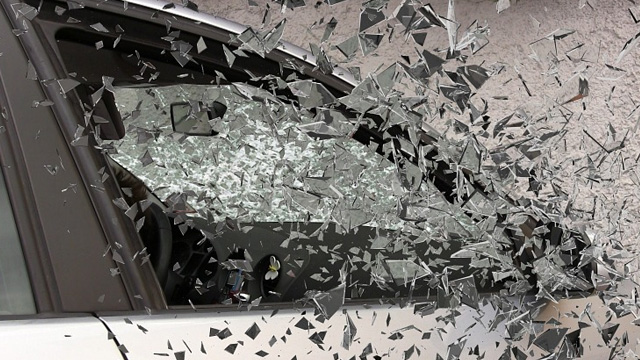 No one wakes up wondering if today is the day their life will be turned upside down due to a car accident. However, becoming an auto accident victim is an unfortunate reality of many lives that strikes when least expected. The ensuing emotional distress, potential minor or serious injuries, and numerous repercussions can be overwhelming to deal with if you’re not informed and somewhat ready before the accident occurs.
No one wakes up wondering if today is the day their life will be turned upside down due to a car accident. However, becoming an auto accident victim is an unfortunate reality of many lives that strikes when least expected. The ensuing emotional distress, potential minor or serious injuries, and numerous repercussions can be overwhelming to deal with if you’re not informed and somewhat ready before the accident occurs.
Car accident help techniques can be applied preemptively, during and after an accident to greatly reduce the stress of the situation, help prevent further injury to yourself or others, assist with local authorities, and prepare for a potential legal battle that may lie ahead.
We have put together a comprehensive list of 22 car accident help suggestions in a nifty chronologically-ordered guide that covers accident preparedness through how to mentally cope with car accident injuries after you’re home or recovering in a hospital.
Before an Accident
During an Accident
After an Accident
Emergency Accident Kit For Your Vehicle
Whether your vehicle happens to blow a tire and skid out in the deep wilderness at night or gets hit by a bus in rush hour city traffic, it’s always a wise idea to have an emergency kit right there and ready for immediate use.
These are some great items to include in a personalized vehicle emergency kit that will come in handy regardless of the accident’s severity. Some items might seem obvious but you can never be too careful during preparation to ensure all bases are covered.
- Cell phone with camera and voice recording function (if you don’t normally carry one)
- Disposable backup camera
- Car insurance card
- Medical information card noting special health conditions and insurance carrier/number
- All emergency contacts including family, friends, doctor and desired injury lawyer
- Pen/pencil and paper to write on
- First aid kit
- Roadside flares
- Small cones
- Small, powerful LED flashlight
- Water bottles (switched out bimonthly) or insulated drinking containers
- Snacks like peanuts
- At least one blanket and towel
- Hat/gloves/change of clothes if you travel in cold weather areas
- Spare tire
It is highly recommended to keep a physical copy of all information in case a cell phone is damaged during the accident and rendered useless. We also recommend against the prepackaged accident preparedness kits as they are typically overpriced and won’t ever contain everything you need. Purchasing your own items, much like shopping for school supplies, is the best way to go.
GPS on Phone or Separate Device
Imagine being in an accident and needing immediate medical attention but not knowing exactly where you are due to either a remote area or concussion symptoms. Wouldn’t it be nice to look at your phone and know immediately where you’re located?
Most iPhones and Android phones come with a prepackaged mapping app. If for some reason you can’t find one on your phone then make sure to get one installed as soon as possible.
Emergency Contacts Easily Accessible on Phone
People don’t generally regularly call their doctor, lawyer or insurance company to shoot the breeze so those numbers might not be easily accessible on your phone. You can save yourself a lot of headache and hassle by making sure 911 and the local police, immediate and secondary family emergency contacts, doctors, a local accident lawyer whether you are a client or not, AAA if you’re a customer, and your insurance company are quickly accessible in your phone’s contacts to offer car accident help and guidance with a single button push.
Understand Your Vehicle and Health Insurance
Many of us are guilty for buying vehicle and health insurance because we legally have to and never take the time to fully understand our coverage. If you’re in an accident and need car accident help, knowing your coverage ahead of time without having to figure out it on top of the emotional stress of an accident is hugely beneficial.
Insurance companies are notorious for presenting your coverage in the equivalent of a short novel. Spend an hour to pluck out the important information you might need such as:
- Deductibles for health coverage
- Emergency room, ambulance, tow truck, and out-of-network costs
- Rental car coverage
Stay Put and Remain Calm
You’ve just been in an automobile or truck accident and are probably in immediate shock as a result. Unless you and your vehicle are literally on fire, do not under any other circumstance exit the vehicle and try your best to remain calm while you assess the situation.
First and foremost your accident will impact vehicles in the immediate vicinity. You see it in the news every now and then; someone gets out of their car after an accident or a good samaritan comes to help and one or both individuals get hit by a car speeding by wasn’t paying attention to the road.
You could also have an injury that will worsen with movement, injure yourself trying to force open a damaged door or window, or injure someone else who sees you struggling to exit and tries to offer assistance.

Move Your Vehicle if Operable
If your vehicle is still operable then it’s a good idea to maneuver it out of traffic lanes and off to the side of the road as long as there is a clear and safe path to do so. This will lessen the probability of another car or truck barreling down the road from slamming into it if they were distracted and not paying attention.
Call The Police and 911
Now that you’re still in your vehicle and calming down a little, it’s time to call the Police and 911. Ask someone else in the vehicle or the first person to arrive at the vehicle to place the call for you if you are unable to make the call due to injury or phone inaccessibility/damage.
Make sure you or whoever is on the phone with the police remains on the line until they arrive at the scene or until the 911 or police operator instructs you to hang up.
Do Not Admit Accident Fault
You may come face-to-face with the other vehicle driver(s) involved in the accident and get engaged in a conversation. Regardless of whether you feel you were at fault in the accident, do not under any circumstance admit fault for the accident to the other driver(s) or authorities. Fault discussion is best left for your attorney.
Exchange Insurance Information
If you followed the emergency kit for your vehicle directions then you’ll have your car insurance information handy. Swap this information with the other driver(s) making sure to get the following back in return:
- Driver name(s), address and phone number
- Car(s) make/model/year/license plate number
- Insurance company and policy number
Talk to Witness(es)
Oftentimes one or more third parties witnessed the accident. You never know when a witness statement or testimony might be needed so it’s best to get their name and phone number at minimum, either using your pen and paper or phone, in case you need to pass the information along to your attorney.
Do Not Talk About Your Injuries
What you say about your injuries at the accident scene to anyone could come back to hurt you in the wallet later on if you underestimate the injuries. If someone asks you how you’re doing or if you’re hurt, stick with vague responses like, “I’m not sure” rather than offering any specifics.
Obviously if the paramedics are helping you at the car accident scene and ask you where you hurt, you tell them! Do not try to self-diagnose yourself; let the professionals do their job.
Photograph the Accident Scene
Use your cell phone or backup disposable camera to take extensive pictures and video of the accident scene. These pictures should include the following at minimum:
- Damage and positioning of your vehicle and the other vehicles
- Terrain immediately before the accident including skid marks
- Multiple angles of the accident scene
Remove Personal Belongings From Your Vehicle
If you’re physically able and it’s safe to do so after the accident scene has been secured and the vehicle is still safe to enter, you should remove all your personal belongings from your vehicle. Other people you don’t know will have access to the vehicle once the tow truck hauls it off so it’s best not to invite theft by leaving valuables laying around.
Collect Your Thoughts — Alone
At some point during the accident scene chaos, after you’ve gone through the necessities, take a few moments to stand or sit by yourself and collect your thoughts. Healing Trauma recommends a series of exercises where you rotate between focusing on the first feeling or sensation in your body and them shift that focus to the exact opposite feeling in your body over and over again. This act of Pendulation will help discharge the nervous energy.
If the injuries are so severe that you’re physically or mentally unable to do this at the scene, practice it later when you’re alone and able to do so.
Call Your Doctor
Oftentimes back and neck pain stemming from a car accident don’t show up until several hours or even a day or more after the accident. For both your personal well-being and potential lawsuit, have your doctor check you out as soon as possible after the accident. Your lawyer will need a detailed diagnosis of injuries as part of the evaluation process of your potential injury claim.
Call Your Lawyer

It’s best to err on the side of caution and contact your lawyer as you’re physically able to do so and especially before talking to the insurance company. Your lawyer shouldn’t charge you for initial advice on how to proceed with a potential injury claim and will help you spell out your options, next steps, and help define expectations.
Call Your Insurance Company
You will want to report the accident to your insurance company after you’ve talked to your lawyer. Don’t deliberately avoid getting insurance involved because the damage to your vehicle looks minor to the eye. You have no idea what nightmares are brewing under the body like a bent frame or expensive damaged parts. The former often results in a total loss of the vehicle.
Do Not Talk to Other Driver’s Insurance Company
You may get a phone call from the other driver or drivers’ insurance company inquiring about the accident. You are under no obligation to speak to them and are advised to politely decline the conversation. They are working for the other party or parties, not you.
Document Medical Treatment, Lost Wages and Distress
Your attorney will need to see documentation for all your doctor visits, medication, and wages lost as a result of any car accident injuries. If you choose to file suit then it will be a lot easier to produce documentation, such as a diary, of this information rather than trying to recreate it from receipts or memory.
If you intend to file suit for distress then also document in a journal or other medium every time the injuries impact your normal way of life.
Take Care of Yourself
Different people will experience a varied range of emotions in the hours, days, weeks and even months following an injury accident. One of the worst things you can do is cope by falling into bad habits. Use this unfortunate circumstance as a change for good by balancing your diet and regularly exercising if physically able to do so.
Seek Support From Friends and Family
It is a lot easier to get through a traumatic injury and subsequent physical healing with the support of friends and family. You may feel like being alone most of the time to deal with guilt, but you’d also be amazed how powerful being around those that care for you can be to your mental well-being during difficult times.
Be Patient
Being patient and hoping for the pain, suffering, and inconvenience of a car accident to wash away for good is easier said than done, right? Absolutely. However, knowing beforehand that the healing and legal process can take weeks, months, and sometimes longer depending on the accident and injury severity can mentally help prepare you for the aftermath of an injury accident.

